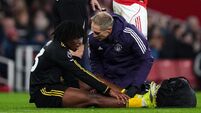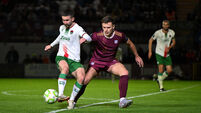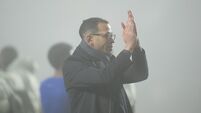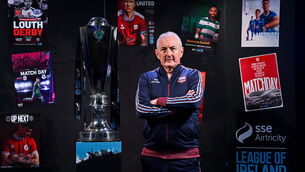Tommy Martin: Kenny’s Ireland takes another step to a more diverse future
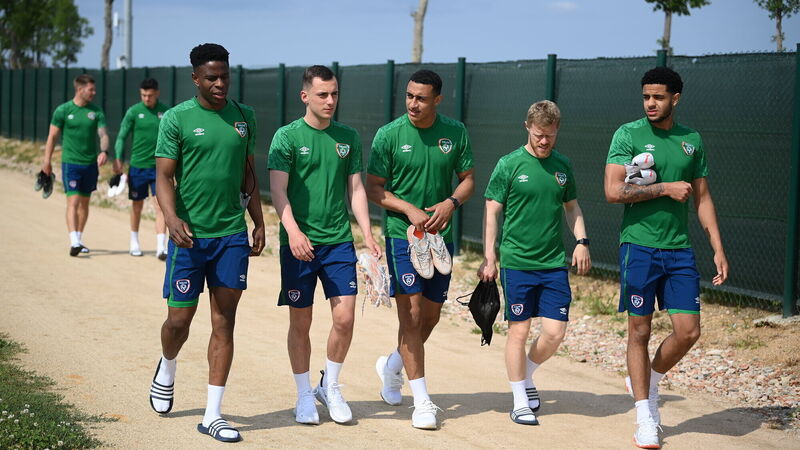
Chiedozie Ogbene, Lee O'Connor, Adam Idah, Daryl Horgan, and Andrew Omobamidele arrive for a Republic of Ireland training session at PGA Catalunya Resort in Girona, Spain. Omobamidele and Ogbene join Gavin Bazunu and Idah as members of the senior squad with Nigerian heritage. Photo by Stephen McCarthy/Sportsfile
Talk about the changing face of the Republic of Ireland soccer team and most people will think you mean Stephen Kenny’s tiki-taka revolution.
Some maintain that, like Germans and stand-up comedy, Irish players passing the ball is simply a contradiction in terms. Others applaud the manager for sticking to his guns, despite 11 winless games, though Big Sam might be checking his phone if Andorra aren’t beaten tonight.




